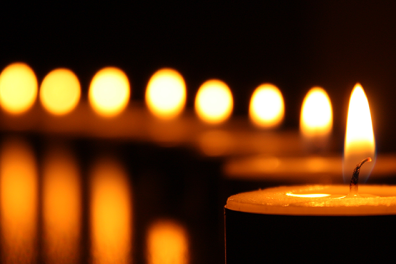Death of Christophe Balaÿ, specialist in Persian literature and translation
Menu Education

It was with great sadness that we learned of the death of our colleague Christophe Balaÿ (1949-2022), who passed away on July 31, at the age of 72, after a long illness.
Trained as a comparatist, he was Professor of Persian at Inalco, Director of the Institut Français de Recherche en Iran and Vice President for Research at Inalco.
At the same time as writing a thesis in comparative literature at the University of Nanterre, devoted to Persian tales translated by the orientalist Petis de la Croix (under the title "Le sage et les Milles et un jours de F. Petis de La Croix") and defended in 1979, Christophe Balaÿ trained in Persian at Inalco.
He lived in Teheran as a researcher at the Institut français d'Iranologie from 1979 to 1983, when Iran was plunged into the Iran-Iraq war after the revolution. These difficult circumstances did not prevent him from pursuing his research into modern Persian literature, which gave rise to a pioneering study of the short story genre in Iran, highlighting in particular the role played by the satirist chronicler Dehxoda. It was published in collaboration with Michel Cuypers under the title Aux sources de la nouvelle persane (Paris, Editions recherches sur civilisations, 1983).
On his return to France, he embarked on a doctoral thesis under the supervision of Charles-Henri de Fouchécour, devoted this time to the genre of the novel and defended in 1988. He began teaching at Inalco a year later, succeeding the man he would call his "master" for the rest of his life, and within a year published the first Persian textbook to give a place to the teaching of the everyday language, Manuel de persan, le persan au quotidien with Hossein Esmaili (Asiathèque, 1997) and La genèse du roman persan moderne (Téhéran/ Paris, Institut Français de recherche en Iran, 1998). This study, also pioneering, is based on the prefaces to the most important novels of the late 19th and early 20th centuries.
He then returned to the Institut Français de Recherches en Iran, this time to direct it from 1998 to 2003. On his return, he took over the management of the Persian section at Inalco, and became involved in the development of comparative literary studies and translation. For a number of years, he federated a team of researchers in world literature, and was notably involved in the creation of a Master's degree dedicated to these two disciplines, LITTOR (2010-2014). Vice-Chairman of the Scientific Advisory Board alongside Gilles Delouche, he went on to head the Doctoral School from 2010 to 2011, and put his rigor and great integrity at the service of research at Inalco until his retirement in 2014.
.
He has published two books reflecting his concern to pass on his experience: Les Lectures persanes, in collaboration with Amir Moghani (Asiathèque, 2015), in which he offers translations of extracts from the most significant texts of Iranian literature, accompanied by a reflection on the evolution of this prose from the late 19th to the 21st century, then La crise de la conscience iranienne. Histoire de la prose persane moderne (1800-1980) (Paris, Harmattan, 2017), the first history of modern Persian literature to appear in France, which helps to establish in the field of Iranian studies a discipline too long in the minority.
Pressed for time, he devoted all his time to translation: he had already translated works by Sâdeq Hedâyat, Zoyâ Pirzâd, Faribâ Vafi and Houchang Golshiri, and now adds the names of Shahrnoush Pârsipour, Ghâzi Rabihâvi and younger writers such as Zahrâ Abdi and Nasim Marachi.
A new translation by Ghâzi Rabihavi was published by Serge Safran in August, and another by Nasim Marachi will soon be published by Zulma, which will enable us to hear his voice again.